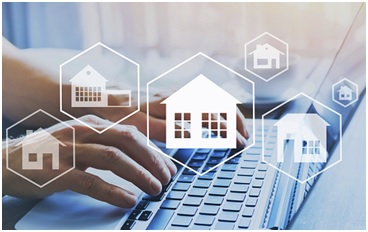8 Important Factors to Consider When Buying a Property
Estimated reading time: 5 minutes
Copyright© 2023-2026 | RealTech Solutions, LLC | All Rights Reserved
THIS ARTICLE MAY CONTAIN AFFILIATE OR OTHER LINKS, WHICH MAY PROVIDE REVENUE TO THE AUTHOR OR WEBSITE OWNER.
Are you overlooking anything important that could cost you time, money, or aggravation when shopping for a new property? Read about these 8 key factors to be certain that your bases are covered as you search for your next purchase.

BUDGET
Determine how much you can afford to spend on a property, including your income, expenses, and other financial obligations, and then stick to it. Use an online mortgage calculator to estimate the loan amount that you can afford. However, keep in mind several factors when actually applying for a home loan that could ultimately affect the amount you’re allowed to borrow.
If you want to know what your purchase power may be, this article can help you make that determination. However, it’s always recommended that you get a pre-approval from a mortgage lender because that figure will be more accurate. Getting pre-approved for a mortgage will not only help you establish a price range before you start looking at homes but also can help in the offer and negotiation process by establishing your ability to purchase the home.
LOCATION
Look for a property in a neighborhood that suits your lifestyle, and don’t overlook the basics like proximity to work, commute time, schools, shopping, and other amenities. To assist with a cost-benefit decision of a higher-priced property that’s closer to where you would like to buy versus a lower-priced property farther away, you should always consider the cost of transportation, including gas, vehicle maintenance, tolls, and public transportation fees. You should also consider how much driving time it will take to commute to work and other regular activities. According to the Census Bureau, the average American will spend almost an hour driving to and from work on a daily basis. This will likely have an impact on your decision and could override your desire for lower housing costs. Ultimately, that decision will depend on your priorities and financial situation.

TYPE OF PROPERTY
Decide whether you want to buy a house, condo, or townhouse, and consider the pros and cons of each type of property. For example, a single-family house may have more space, privacy, and a yard, but it has more maintenance needs, both inside and out. Townhouses and condos may be more affordable with lower maintenance costs, even with monthly HOA fees, but they lack privacy and control. Lifestyle also plays an important role in this factor. If you’d like to know more about the different styles of homes, this article can help you understand.
CONDITION OF THE PROPERTY
Assess the property’s condition and determine whether any repairs or renovations are necessary. Beyond the issues related to structural or landscaping, there is also the age of the appliances in the home, the condition of the floors and carpeting, and what kind of shape the plumbing is in. Overall age of the property is also a key consideration.
This is where an inspector can help you if you are looking to make an offer on a home that appeals to you. If you would like, I can always recommend excellent, qualified home inspectors, but this article also explains how an inspection contingency will help.
For obvious reasons, most people would prefer to move into a home with little or no changes needed. However, that’s rarely the case. The question is, how much work are you willing to do to make a house your home? You may be surprised at how much you can save overall by purchasing a home in need of a little TLC and then hiring those repairs done. “Diamond in the Rough – Could an Ugly House Become Your Forever Home?” provides more details about financing and other options to consider if purchasing a fixer-upper is a possibility.

SIZE AND LAYOUT
Think about the size and layout of the property, including the number of bedrooms and bathrooms, the size of the living space, and the overall layout. When looking at houses, do you want a ranch-style, a two-story home, or a split-level home? These are just a few of the layout options for you to consider, and this article describes the various types of properties along with what’s most popular in each state.
FUTURE PLANS
Consider your future plans and whether the property you’re considering suits your long-term needs. If you’re planning on starting a family, home size and layout become paramount. Likewise, a townhome with exterior services such as lawn care or snow removal may be a better choice if you plan to travel frequently or won’t have a lot of time for exterior maintenance. While plans can sometimes change, it’s always best to purchase the type of home that meets your foreseeable needs.

FINANCING OPTIONS
Determine the best financing option for your needs, whether a traditional mortgage or another type of loan. To learn more about different ways to finance a property, read this article, but know that experienced lenders will also ask questions and then suggest what kinds of financing options are available. If you would like the names of a couple of good lenders I’ve worked with, I’d be happy to provide their contact information to get you started.
REAL ESTATE MARKET
Be aware of the current real estate market and trends in the neighborhood of interest to you. The best way to accomplish this is to seek advice from a professional real estate agent to learn more about specific neighborhoods and market trends. Besides understanding prices and home values, you may also want to research crime statistics, school information, expected growth, property tax history, and other factors.
Remember, it’s important to research and consider all these factors before buying a property to avoid future surprises. Although home prices have historically averaged 3.9% growth over a 25-year period, according to Black Knight, a well-known real estate services firm, the above considerations should play a factor in your next investment. As always, I am available to answer your questions and assist you as you move forward in your home search.